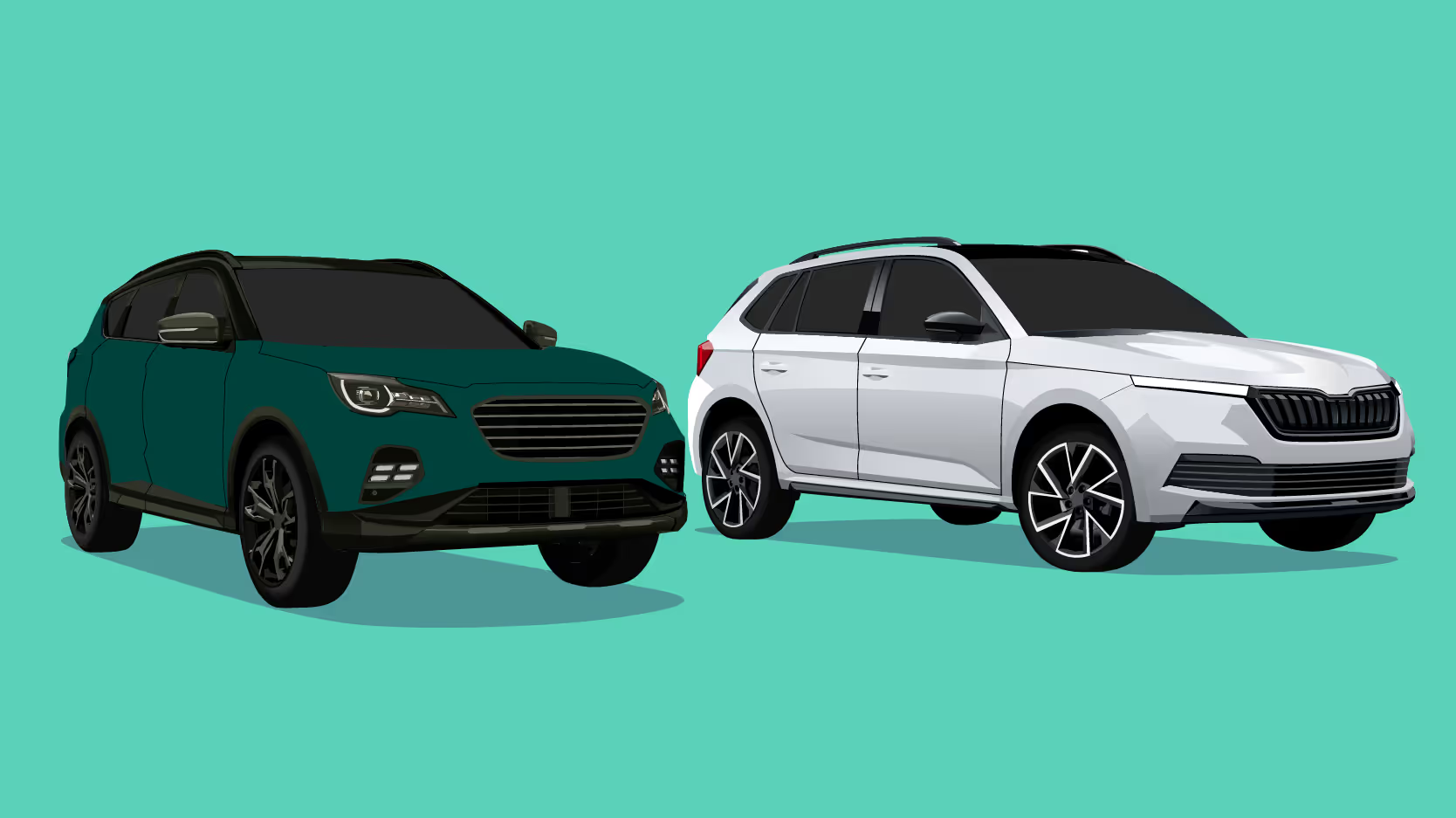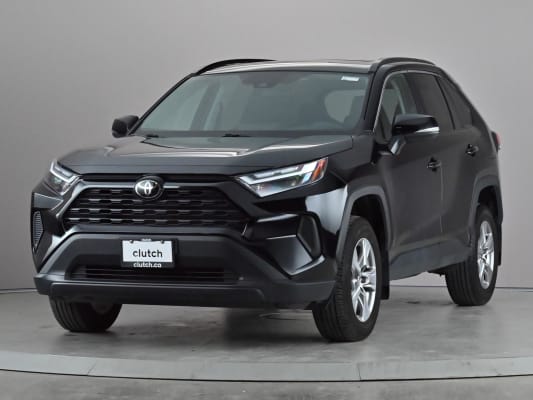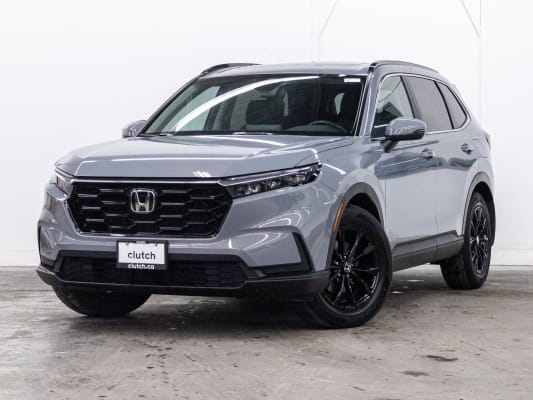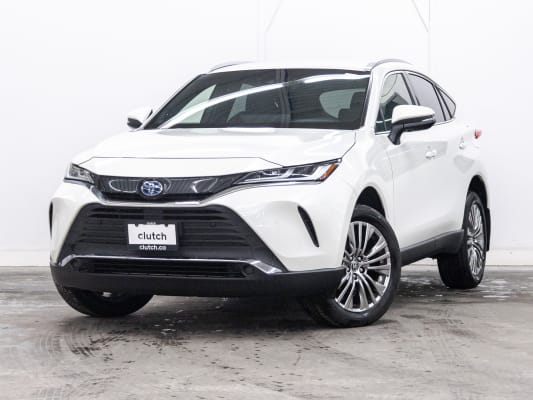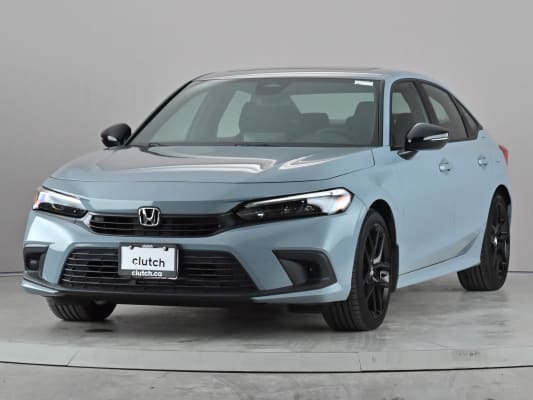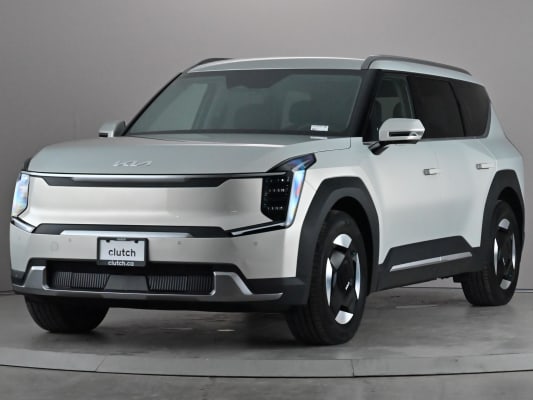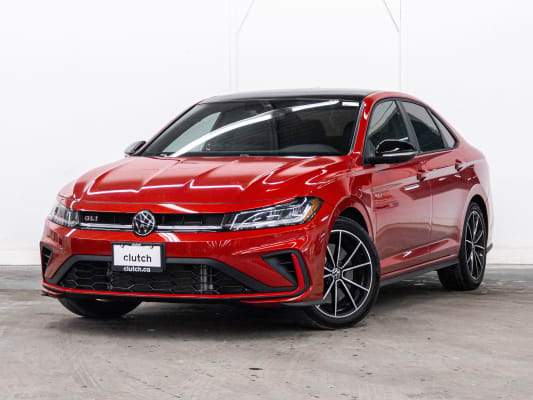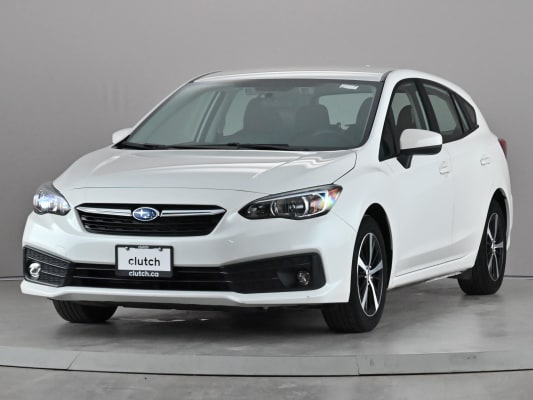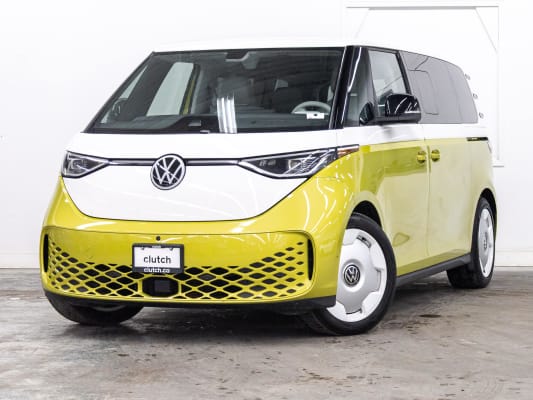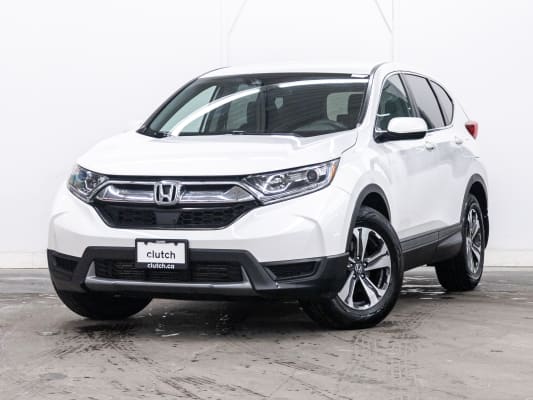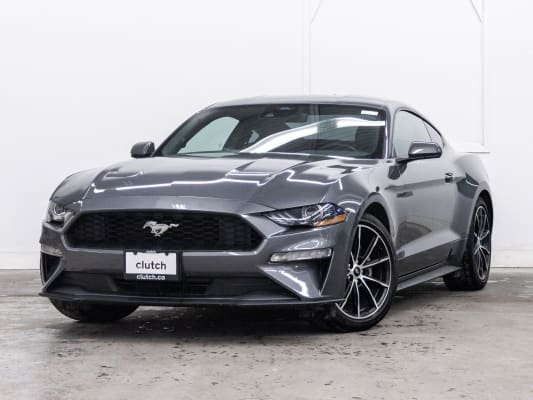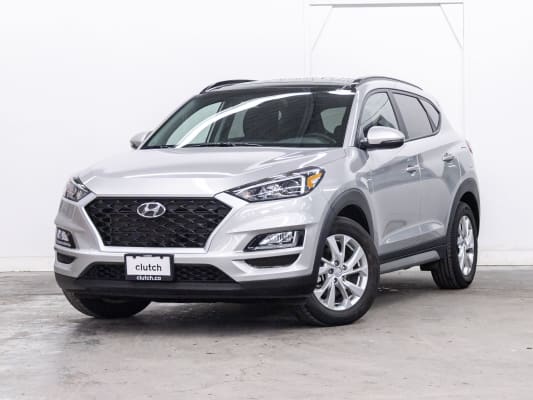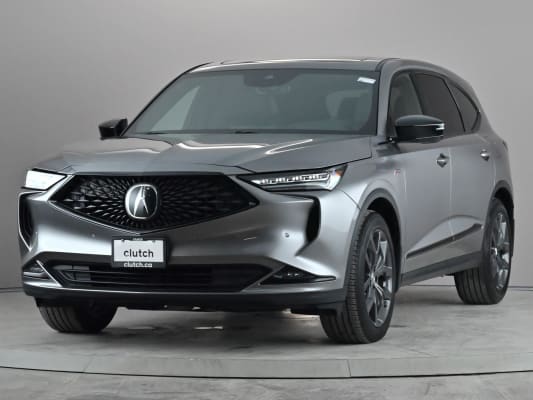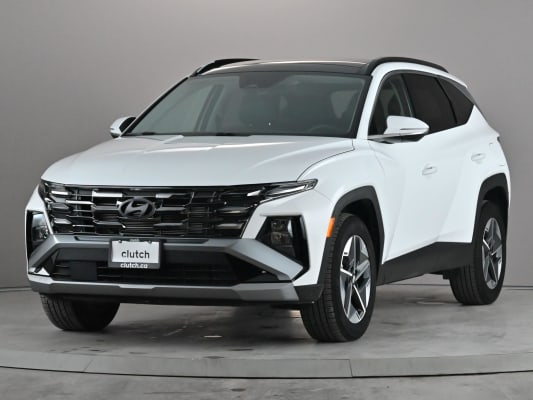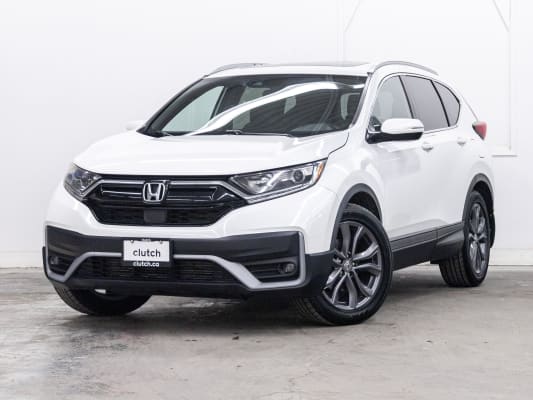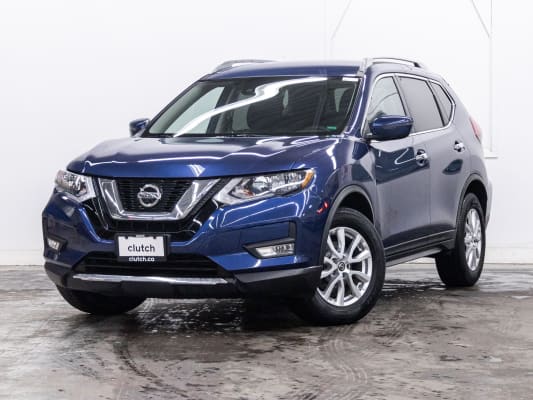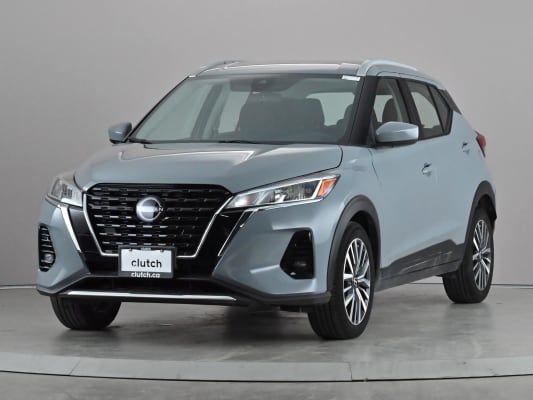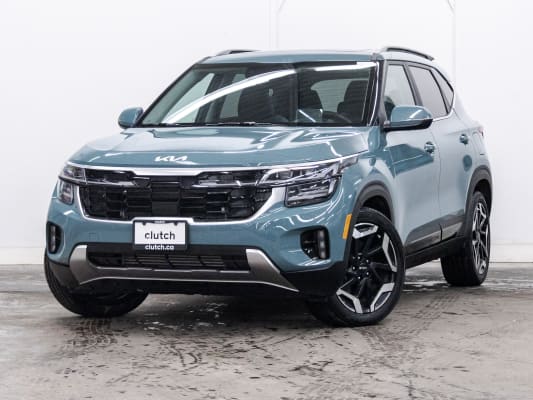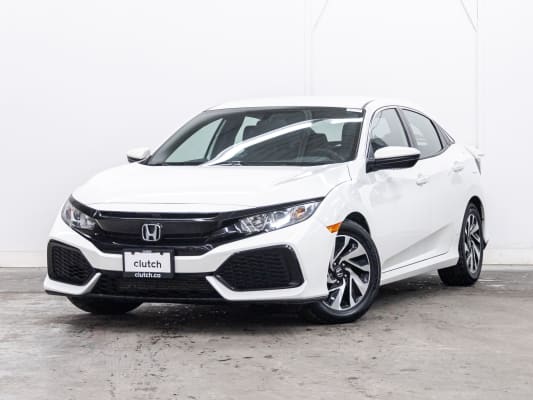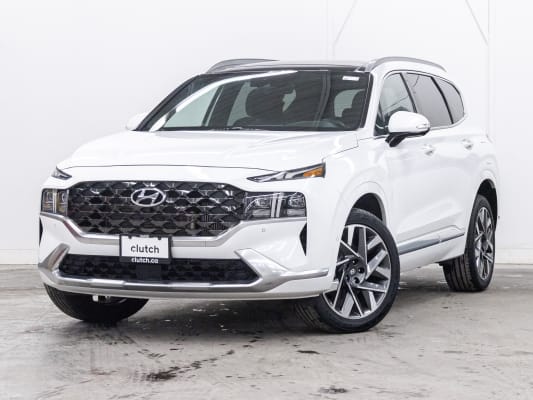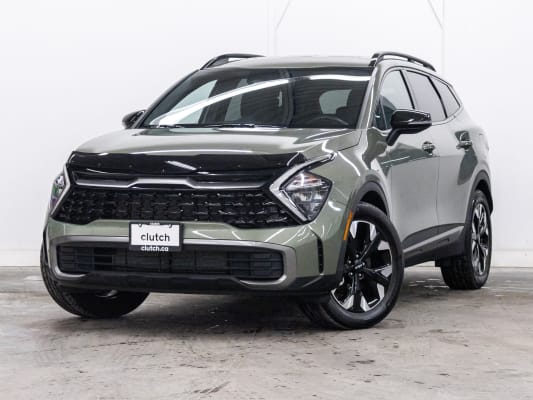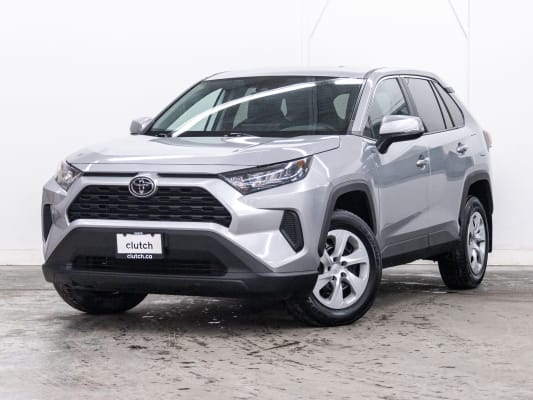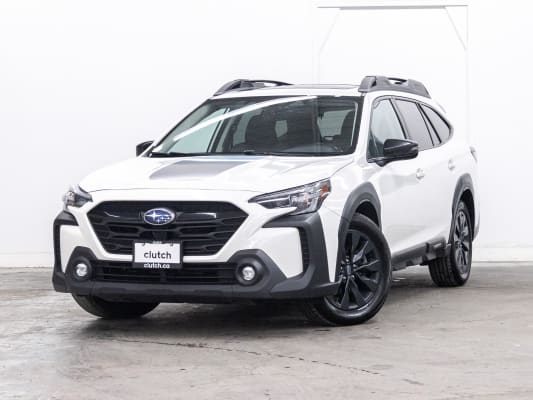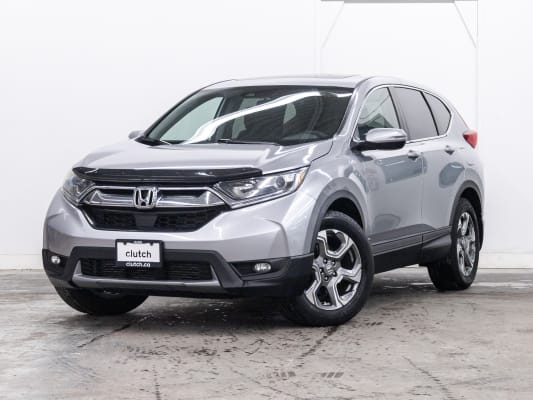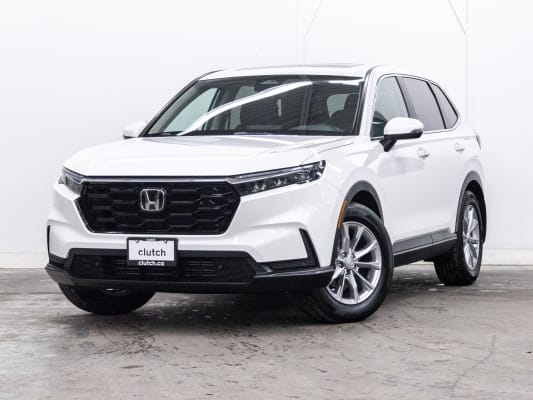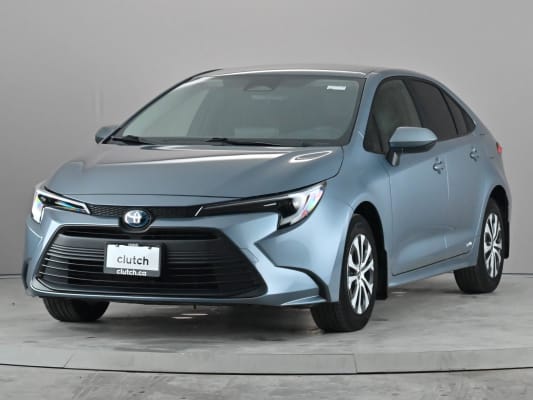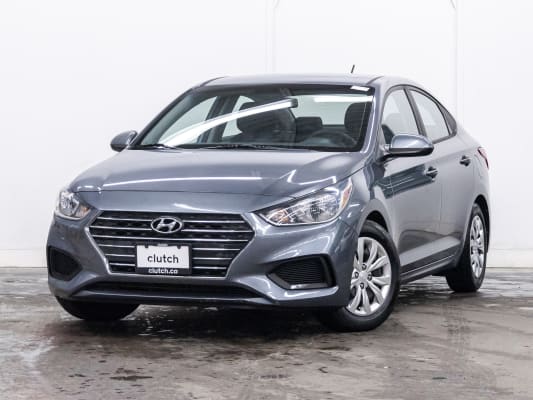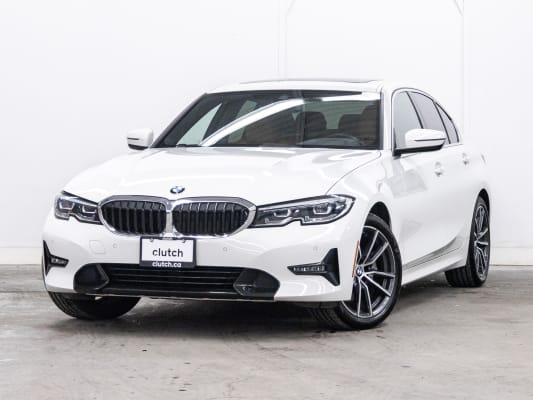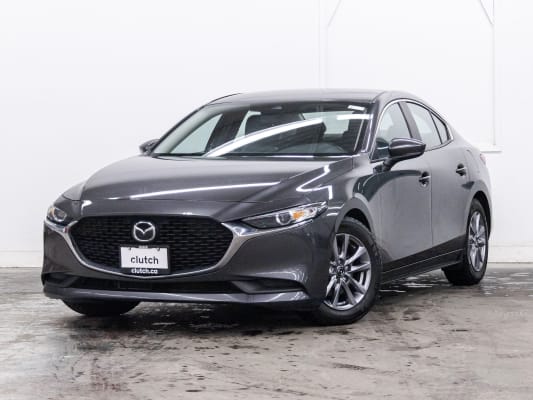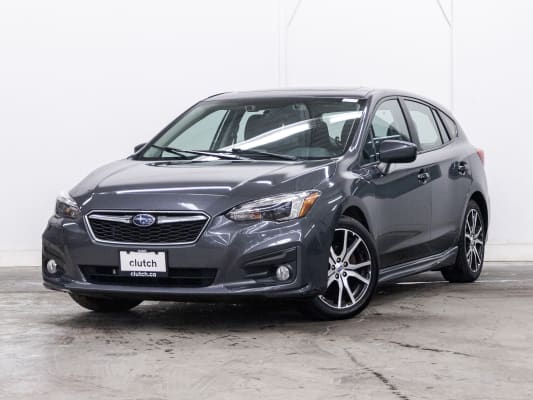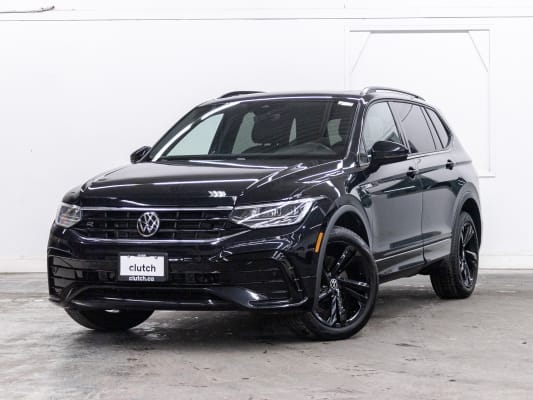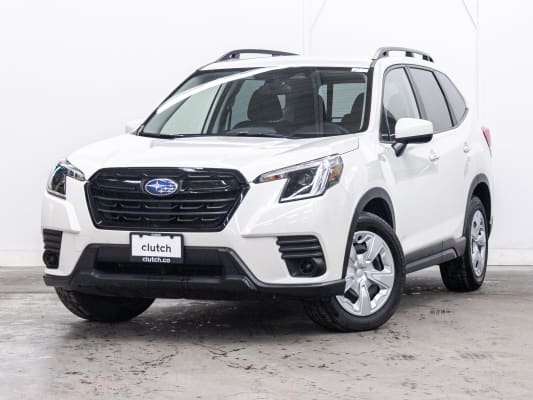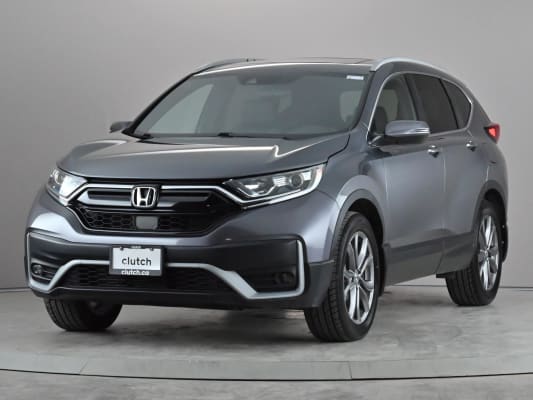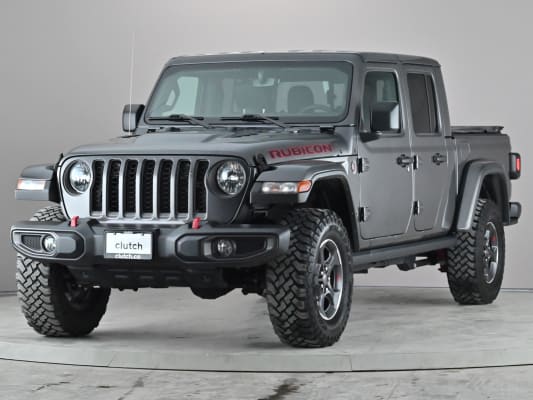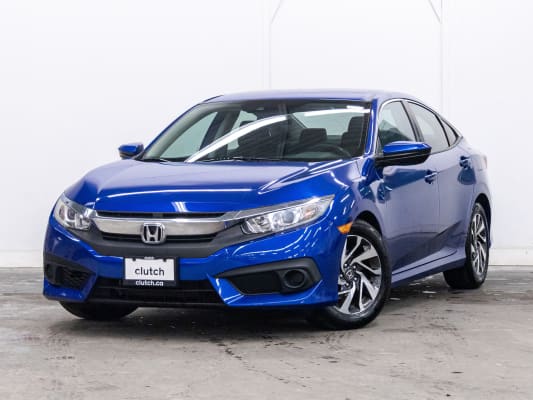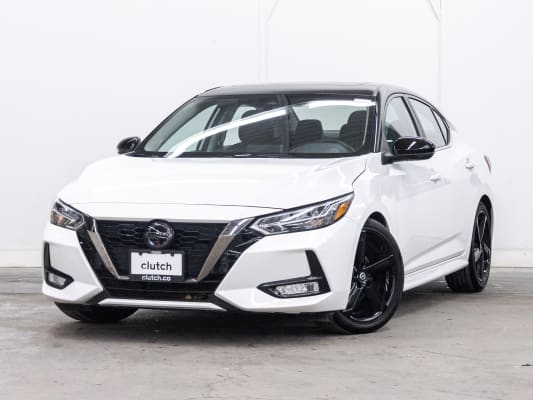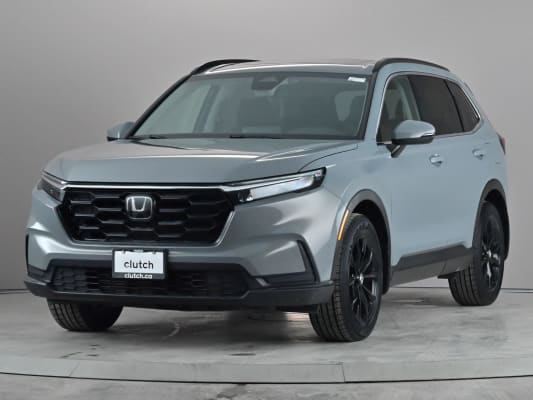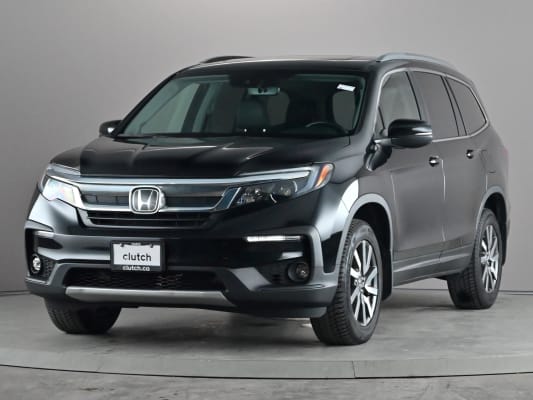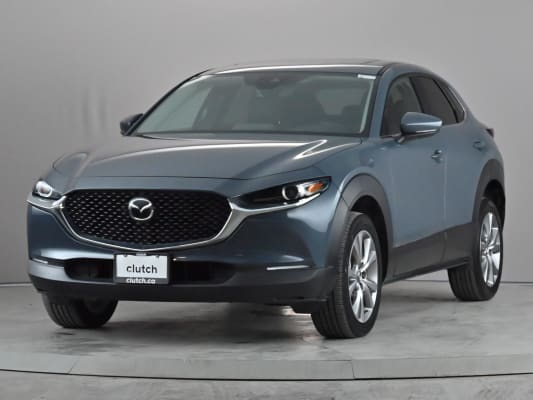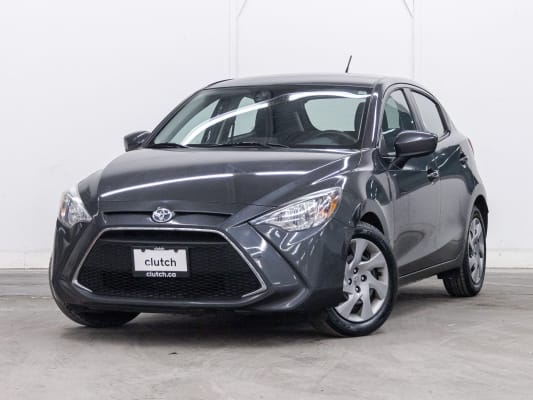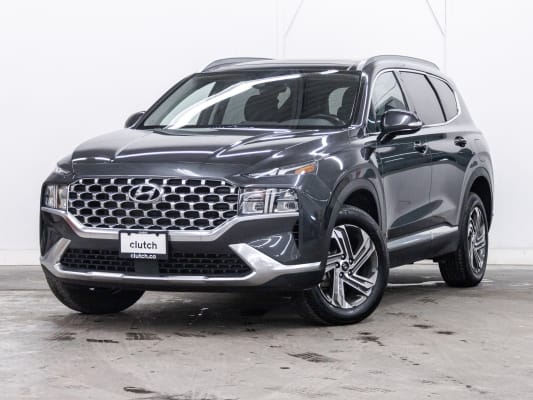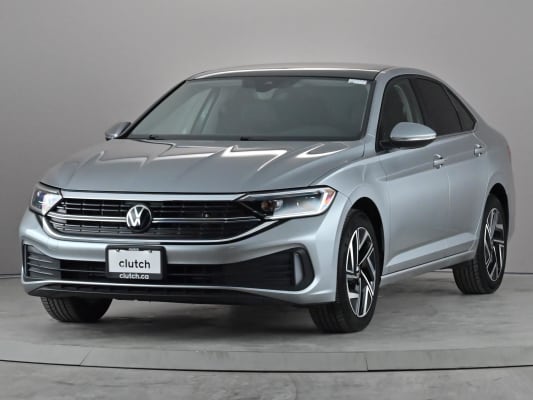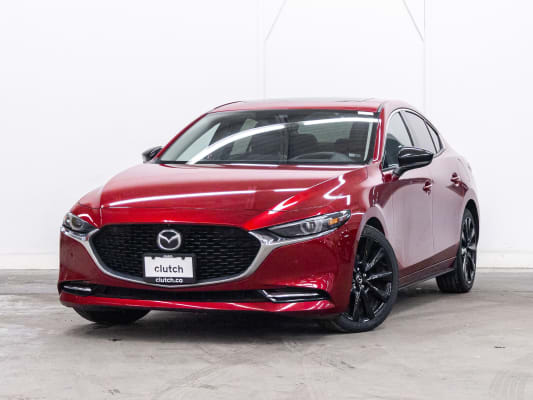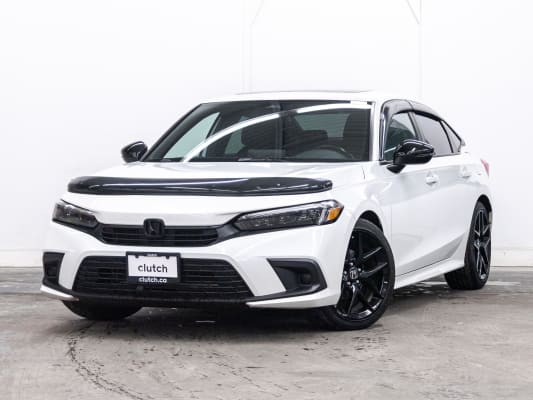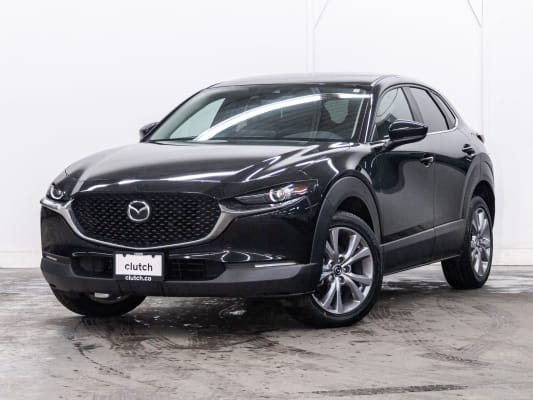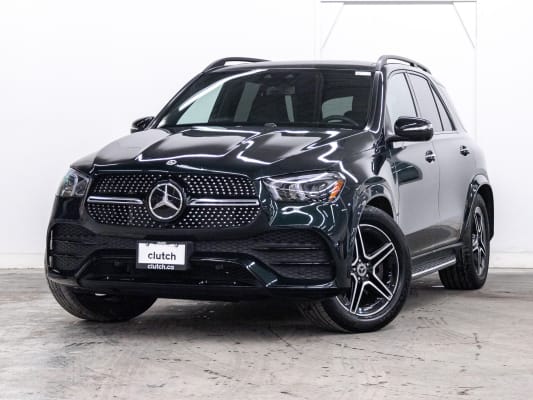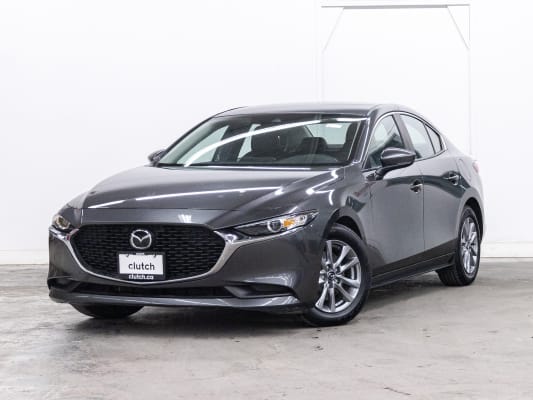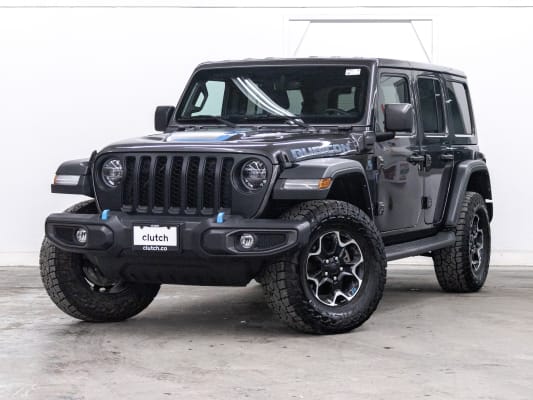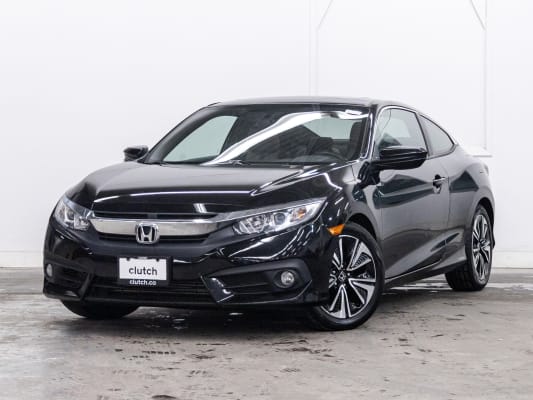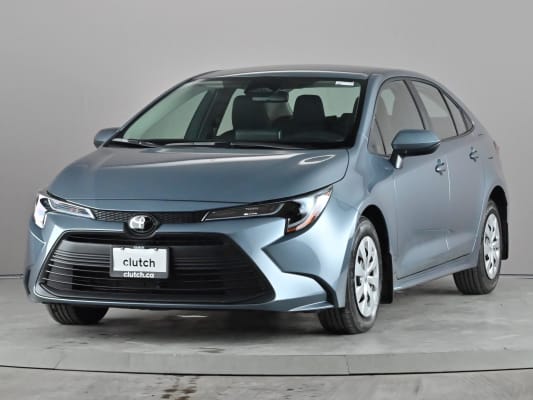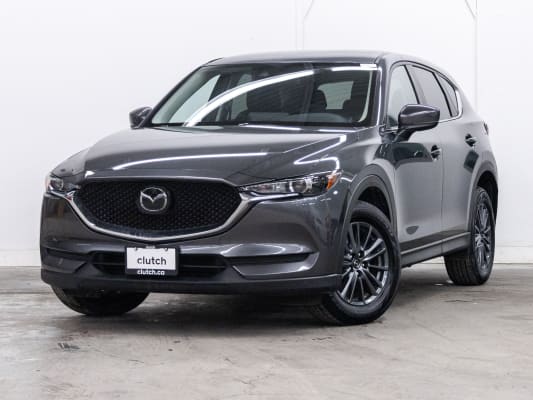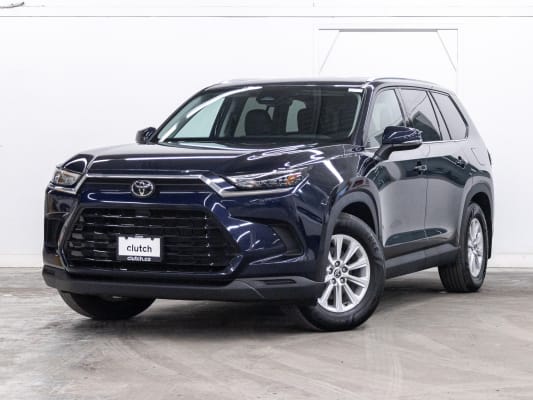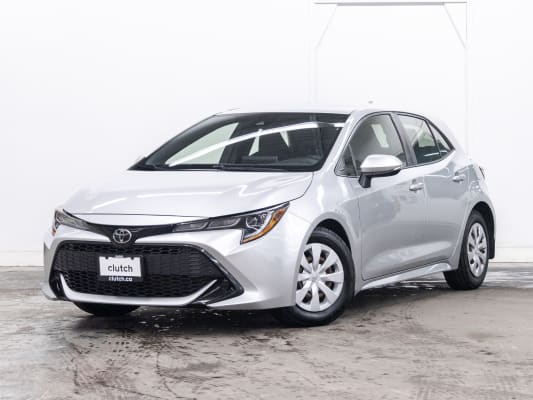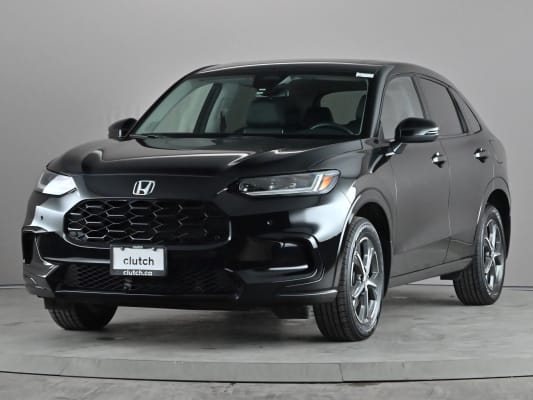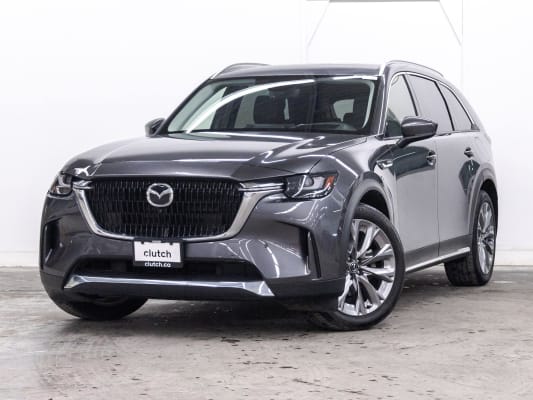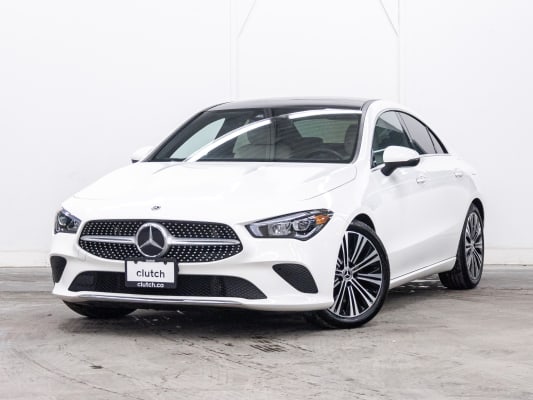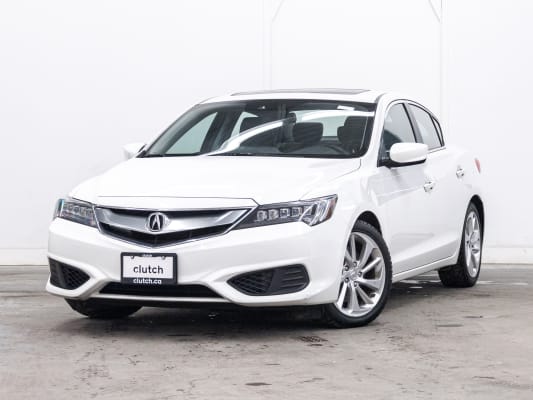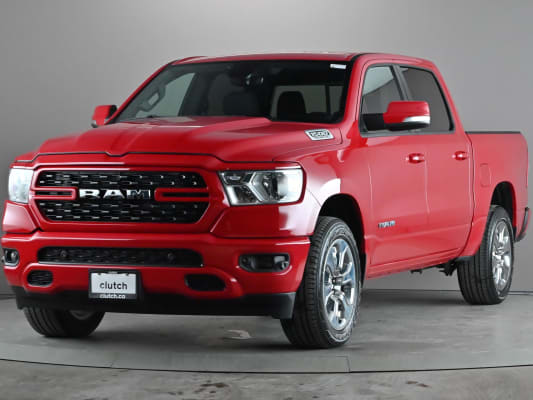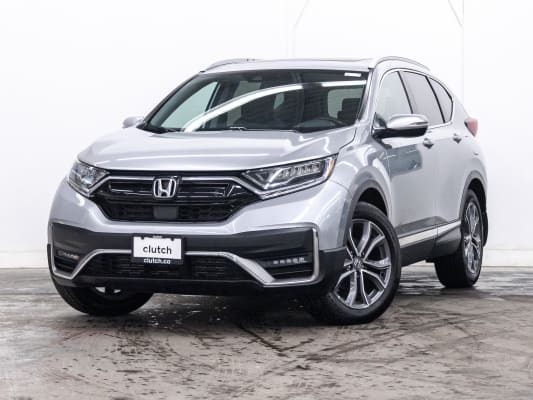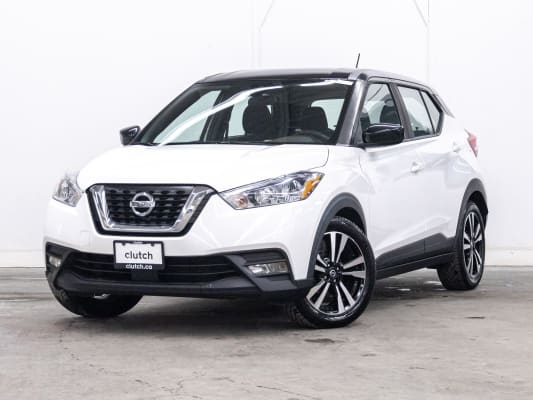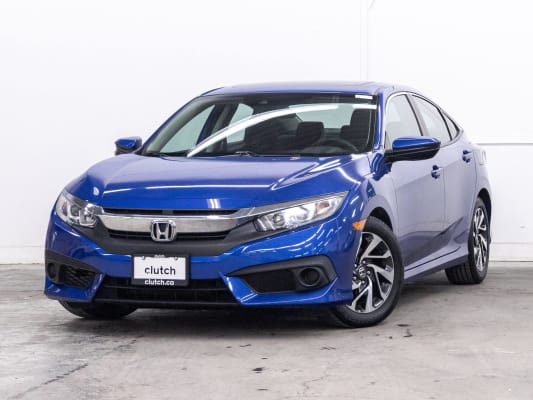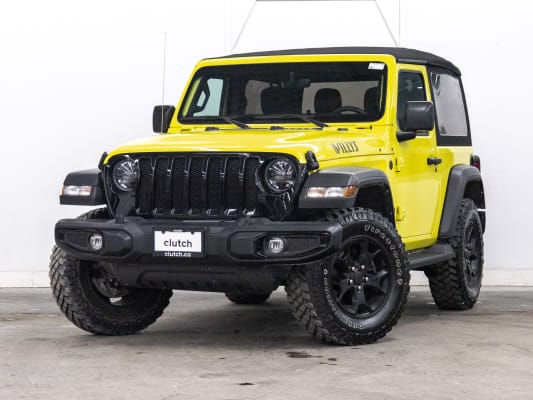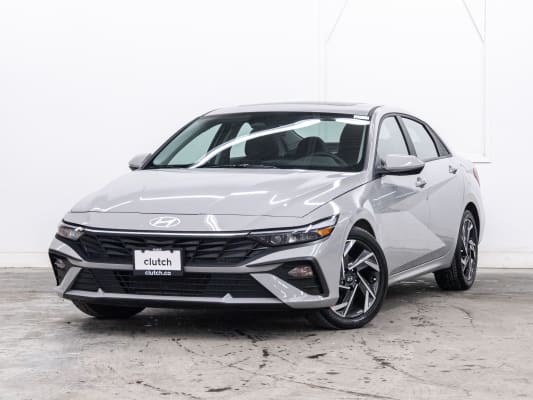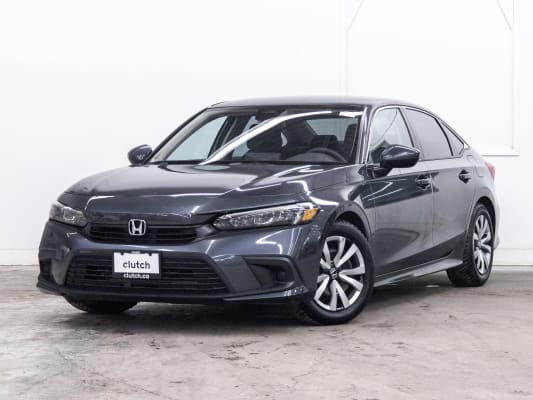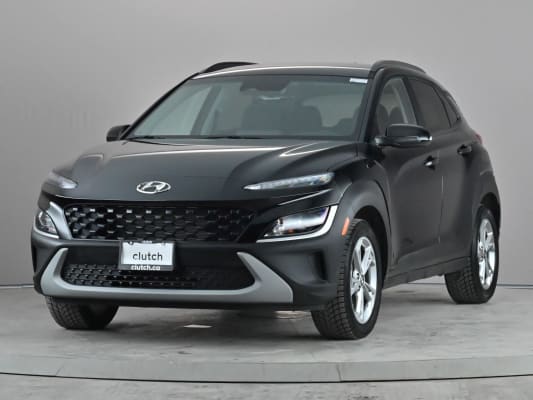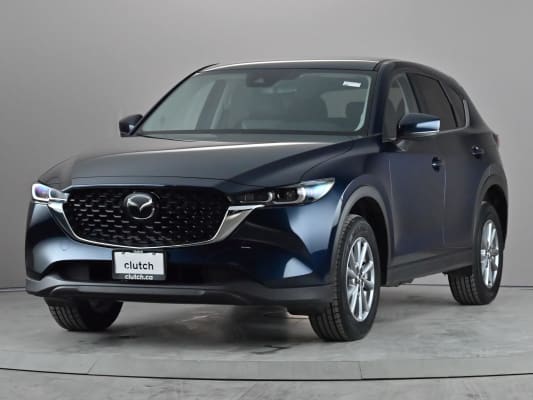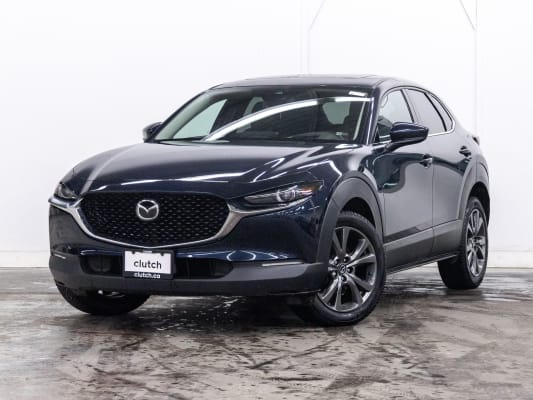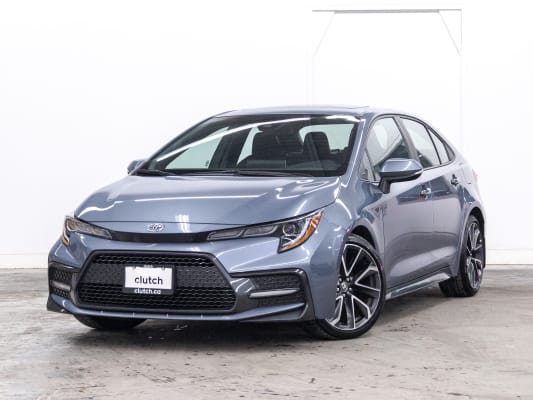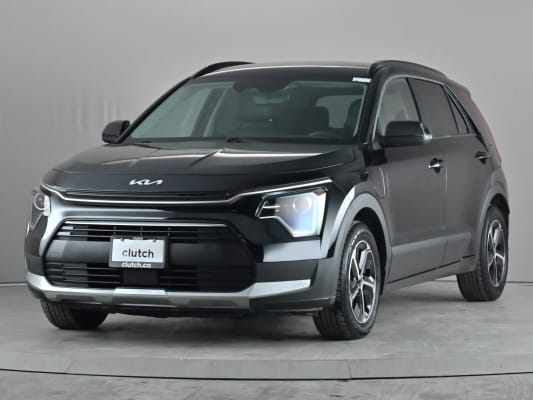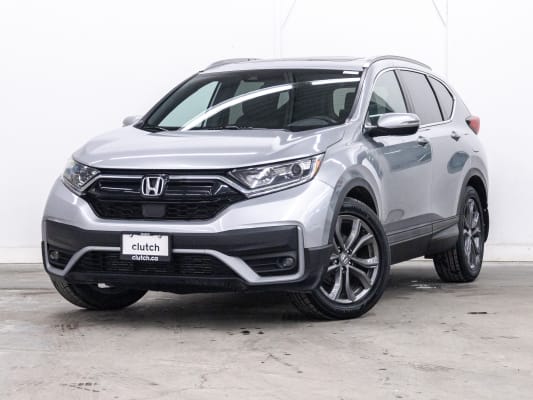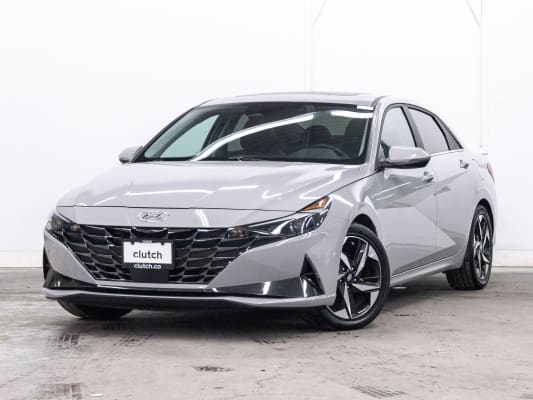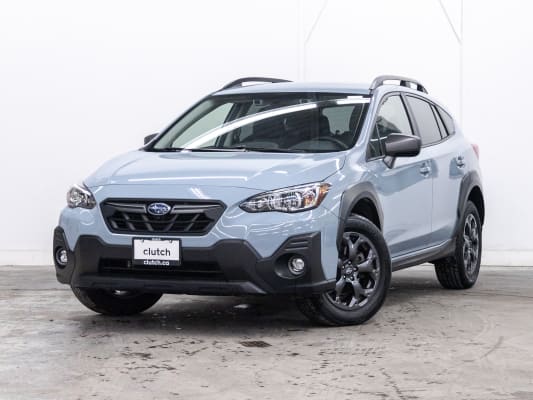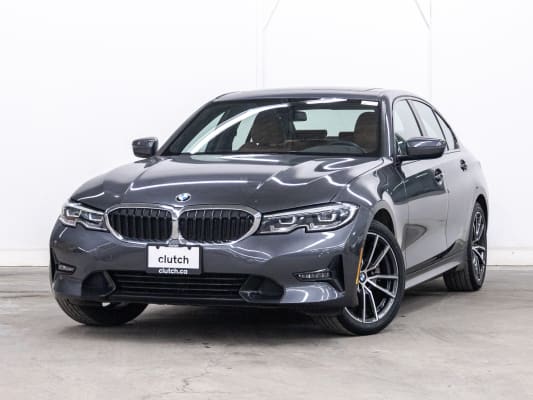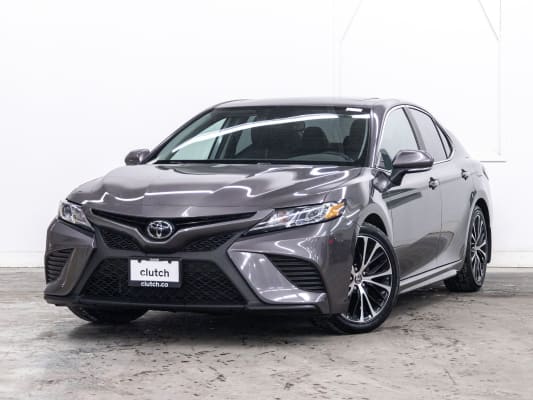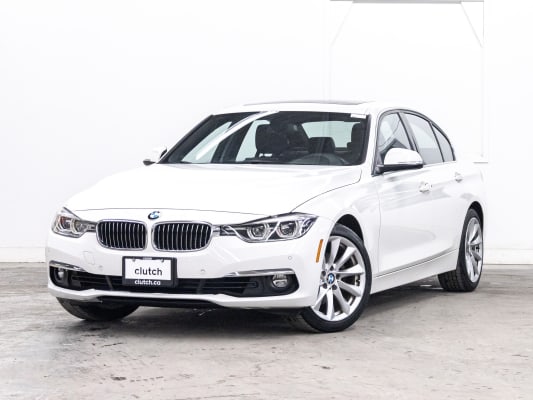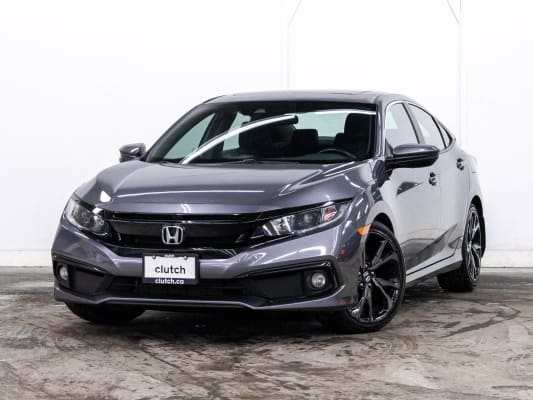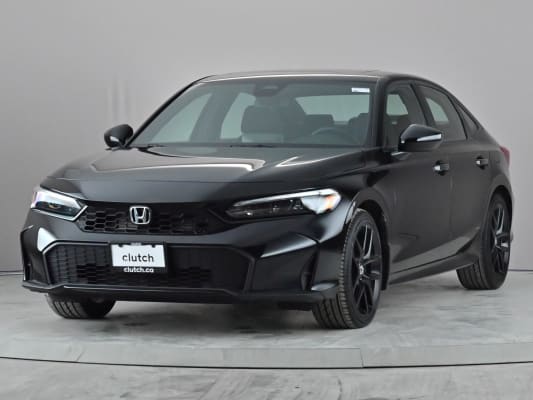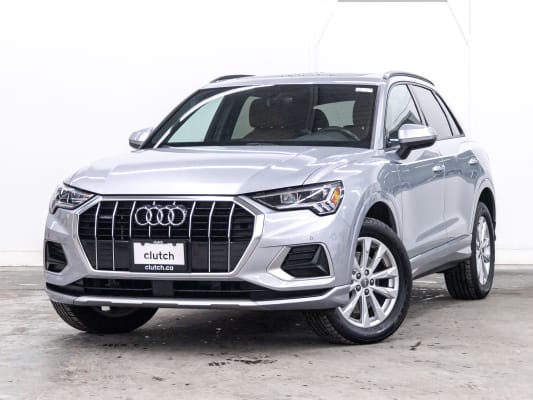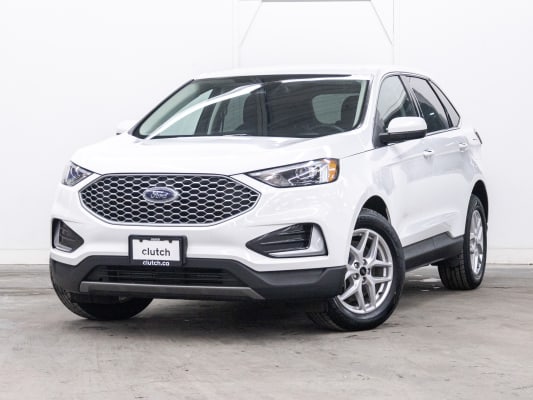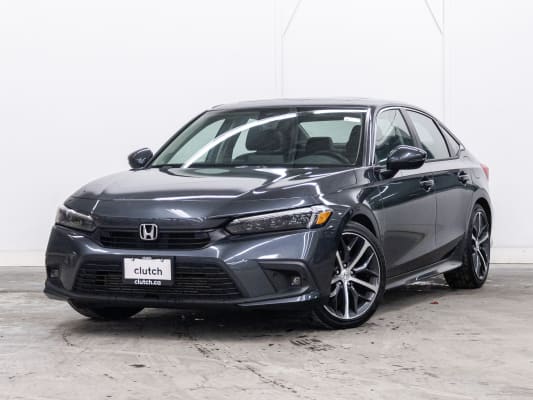Choosing between the Honda Civic and the Honda Accord is like deciding between a reliable backpack and a roomy carry-on suitcase — both get the job done with style and dependability, but one might fit your daily life a little better than the other.
These two Hondas have long been top picks for Canadian drivers, known for their reliability, strong resale value, and practical design. The Civic, a compact sedan built right here in Ontario, has been a best-seller for decades thanks to its fuel efficiency, easy-to-drive nature, and wallet-friendly price tag. Meanwhile, the Accord — Honda’s larger, more refined midsize sedan — offers extra space, power, and comfort that make it ideal for families or highway commuters.
If you’re shopping for a used vehicle in Canada, you’ve probably come across both of these models in your search. And while they share a nameplate and a reputation for quality, they offer two distinct experiences behind the wheel.
In this guide, we’ll compare the used Honda Civic and Honda Accord across the key categories Canadian shoppers care about most — from pricing and performance to tech features and ownership costs. Whether you’re after a nimble city commuter or a comfortable highway cruiser, we’ll help you figure out which sedan fits your lifestyle best.
Used Price Range in Canada
When comparing the Honda Civic and Honda Accord on the used market, you’ll find both offer strong value for Canadian buyers — but there are some key pricing differences based on size, features, and year.

Used Honda Civic Pricing
Used Civic prices in Canada typically start around $20,000 for a 2020 LX trim and rise to about $28,000 for a 2025 version. These prices reflect average listings across online marketplaces, Canadian dealerships, and the Clutch Car Value Calculator.
The Civic's reputation for reliability and fuel efficiency means it holds its value well, especially in popular trims like the EX, Sport, and newer Hybrid options. Buyers looking for great resale value and low ownership costs will find a lot to like in this compact sedan.
Complete pricing for each model year:
2020 Honda Civic, 2021 Honda Civic, 2022 Honda Civic, 2023 Honda Civic, 2024 Honda Civic, 2025 Honda Civic

Used Honda Accord Pricing
The Accord’s larger size and upscale feel mean you’ll pay a bit more. Prices generally start around $20,500 for a 2020 Accord LX and go up to $36,000 for a newer 2025 SE or Hybrid model.
The Accord Hybrid trims tend to command a premium thanks to their excellent fuel economy and added tech. Top-tier Touring models offer even more features and luxury touches, which can push used pricing higher than many competitors in the midsize segment.
Complete pricing for each model year:
2020 Honda Accord, 2021 Honda Accord, 2022 Honda Accord, 2023 Honda Accord, 2024 Honda Accord, 2025 Honda Accord
Canadian Buyer Takeaways
- Looking for a budget-friendly compact with strong resale value? A lightly used Civic LX or EX delivers excellent value under $25K.
- Need more space, luxury, or hybrid efficiency? The Accord SE or Touring Hybrid may be worth the extra cost, especially for highway commuters or families.
- Both models are widely available across Canada, but prices can vary by region, condition, and demand — particularly in provinces where winter packages and rust protection influence resale value.
Performance
Neither the Honda Civic nor the Honda Accord is a full-blown performance car, but both deliver a confident, composed drive that suits everything from urban commuting to highway cruising. That said, they each bring their own character to the road — one light and agile, the other smooth and solid.

Honda Civic
The Civic has always struck a sweet balance between everyday drivability and fun-to-drive dynamics. From 2020 to 2025, most Civic trims — including the LX, EX, and Sport — come equipped with a 2.0L naturally aspirated 4-cylinder engine producing 158 horsepower and 138 lb-ft of torque, paired with a CVT and front-wheel drive (FWD). This combo offers smooth, linear acceleration that's well-suited for city driving and daily commutes.
Looking for more pep? The Touring trim (2020–2024) features a 1.5L turbocharged engine rated at 180 hp and 177 lb-ft of torque, giving the Civic more urgency when passing or merging. And in 2025, the Civic lineup adds a new hybrid option delivering a combined 200 hp and 232 lb-ft, making it the most powerful non-Si Civic ever — and one of the quickest.
For enthusiasts, the Civic Si (available throughout the generation) brings a 200-hp turbo engine and 6-speed manual transmission, making it one of the most engaging front-wheel-drive compacts on the market.
Handling is another Civic strong suit. Thanks to responsive steering, a low centre of gravity, and a stiffer chassis introduced with the 11th-gen redesign in 2022, the Civic feels planted and agile through corners, yet stable and composed on the highway. It’s one of the rare compact cars that blends efficiency with actual driving enjoyment.

Honda Accord
The Accord leans more toward refinement than sportiness — but that doesn’t mean it’s dull to drive. From 2020 to 2025, base trims like the LX or SE are powered by a 1.5L turbocharged 4-cylinder that makes 192 hp and 192 lb-ft of torque, also paired with a CVT and FWD. It’s a smooth operator with enough punch for confident passing and on-ramp acceleration, hitting 0–100 km/h in about 7.5 seconds.
For those seeking more power and efficiency, the Accord Hybrid — available in Sport-L and Touring trims — delivers a combined 204 hp and 247 lb-ft of torque from a 2.0L gas engine paired with two electric motors. It accelerates briskly (0–100 km/h in roughly 6.5 seconds) and transitions between gas and electric power seamlessly, giving you the best of both worlds in terms of responsiveness and fuel savings.
On the road, the Accord feels more substantial than the Civic, with a smooth and composed ride quality. Its longer wheelbase and wider stance help it glide over rough pavement, while the steering remains precise, if slightly more relaxed than the Civic’s. It’s a highway cruiser first and foremost — ideal for long-distance drives and family road trips.
Driving Experience in Canada
- The Civic is a better fit for drivers who value agility, precise handling, and a little fun behind the wheel — perfect for weaving through traffic or navigating tight city streets.
- The Accord delivers a more relaxed, upscale experience, especially on highways or longer trips. It offers more low-end torque and road isolation, appealing to buyers who prioritize comfort and refinement.
Comfort and Interior
Both the Honda Civic and Accord are designed with driver comfort and practicality in mind, but they approach it from different angles. One maximizes space and quality in a compact footprint, while the other leans into midsize spaciousness and upscale touches. Let’s see how they stack up for Canadian drivers.

Honda Civic
Step inside a 2020–2025 Civic, and you’ll find a clean, modern interior that punches above its weight. The 11th-generation redesign in 2022 brought a more upscale look, with horizontal mesh vents, tactile buttons, and soft-touch materials that make even the base LX trim feel refined.
Seating & Materials:
Heated front seats come standard across the lineup — a big plus in Canadian winters. Cloth upholstery is standard on LX and Sport trims, while Touring and Hybrid Touring models add leather seats, a power-adjustable driver’s seat, and heated rear seats for extra comfort.
Space & Layout:
Despite being a compact sedan, the Civic is impressively roomy. Up front, there’s 1,074 mm of legroom, while rear passengers enjoy a generous 950 mm — more than some midsize rivals. Trunk space lands at 419 litres, which is on the larger side for this class, and the rear seats fold down for added flexibility.
Ride & Cabin Comfort:
The Civic’s suspension is firm but balanced, absorbing rough pavement without feeling floaty. Sound insulation has improved noticeably in 2022+ models, and top trims add features like an acoustic windshield for a quieter ride on highways. While some road noise is still present (especially on winter tires), the Civic feels well-planted and confident across varying terrain.

Honda Accord
The Accord elevates things with more space and a noticeably more premium interior feel. Even older models from 2020 feel roomy and thoughtfully designed, while the 2023+ models introduce a sleek dash layout with minimalist vents and an upscale honeycomb trim.
Seating & Materials:
Every Accord comes with heated front seats and a power driver’s seat. Starting from the SE trim (2025), you’ll also get a heated steering wheel, dual-zone automatic climate control, and a sunroof. Hybrid Touring models add ventilated front seats, leather upholstery, and a 12-speaker Bose sound system — ideal for longer road trips or daily commutes.
Space & Layout:
With 1,037 mm of rear legroom and 473 litres of trunk space, the Accord easily fits tall passengers and bulky cargo. The wider cabin and longer wheelbase make it feel almost like a near-luxury vehicle, especially in hybrid trims with extra amenities.
Ride & Cabin Comfort:
The Accord is tuned for comfort, with a smooth and stable ride that shines on highways. Its suspension soaks up uneven roads better than the Civic, and cabin noise is better controlled — particularly in the hybrid versions, which often cruise in near silence at low speeds.
Interior Verdict
- Choose the Civic if you want a compact car that feels more expensive than it is, with smart packaging and great everyday comfort.
- Choose the Accord if you need more space, want premium features, or frequently carry adults in the back seat. It’s a clear step up in comfort and practicality — and it shows on longer drives.

Fuel Economy
With gas prices still fluctuating across Canada, fuel economy remains a key factor for used car buyers — especially for commuters, rideshare drivers, and those facing long winter drives. The good news? Both the Civic and Accord deliver strong efficiency, but they do so in different ways depending on engine choice and trim.
Honda Civic Fuel Economy
The Civic has always been a fuel-efficiency standout in the compact sedan class, and recent model years (2020–2025) continue that trend.
2.0L engine (LX, EX, Sport trims):
- City: 7.4–7.7 L/100 km
- Highway: 5.8–6.0 L/100 km
- Combined: 6.7–6.9 L/100 km
1.5L turbo engine (Touring trim, 2020–2024):
- City: 7.6 L/100 km
- Highway: 6.1 L/100 km
- Combined: 6.9 L/100 km
2025 Civic Hybrid (Sport Hybrid, Hybrid Touring):
- Combined: 4.9 L/100 km (estimated)
While the standard Civic is already frugal at the pump, the 2025 Civic Hybrid brings impressive gains — perfect for Canadians with long commutes or rising fuel bills. And with regular 87-octane fuel across all trims, it’s easy on the wallet.
Honda Accord Fuel Economy
As a midsize sedan, the Accord naturally uses a bit more fuel than the Civic — but it still holds its own, especially in hybrid form.
1.5L turbo engine (SE trim):
- City: 8.1 L/100 km
- Highway: 6.4 L/100 km
- Combined: 7.3 L/100 km
2.0L Hybrid (Sport-L, Touring trims):
- City: 5.0 L/100 km
- Highway: 5.7 L/100 km
- Combined: 5.3 L/100 km
Even in gas-only form, the Accord remains efficient for its size. But if you’re after maximum savings, the Accord Hybrid delivers near-Civic-level fuel economy with the added benefit of extra power and cabin space.
Efficiency Takeaways for Canadian Drivers
- The Civic is more efficient in base gas trims and offers excellent fuel savings without sacrificing drivability.
- The Accord Hybrid narrows the gap dramatically, offering midsize comfort with compact car fuel economy — a solid pick for highway commuters.
- Either way, both models run on regular gas and offer strong fuel efficiency for their class. The best fit comes down to how much space and power you need.
Reliability and Maintenance
When buying used, reliability isn’t just a bonus — it’s essential. Thankfully, both the Honda Civic and Honda Accord have excellent reputations in Canada for long-term durability, low repair frequency, and manageable maintenance costs. Still, there are some subtle differences worth noting for Canadian buyers thinking long-term.
Honda Civic
The Civic consistently earns praise for its reliability, especially in its most recent generations. According to the J.D. Power U.S. Vehicle Dependability Study, the Civic scored 80 out of 100, placing it near the top of the compact segment.
Strengths:
- Proven powertrains: The 2.0L naturally aspirated engine is simple, durable, and low-maintenance.
- Fewer problem areas: Minimal reports of mechanical issues from 2020–2025, with most owner feedback pointing to longevity and low operating costs.
Ownership Experience:
Canadian Civic owners report few surprises — just routine maintenance like oil changes, brakes, and tire rotations. Parts are widely available and affordable, and even older models often sail past 300,000 km with proper care.
Honda Accord
The Accord also enjoys a rock-solid reputation for dependability — particularly in hybrid trims. In the same J.D. Power study, the Accord scored slightly higher at 82 out of 100 for overall quality and reliability.
Strengths:
- The 1.5L turbo engine has matured over the years, with few widespread issues reported in the 2020–2025 range.
- The Accord Hybrid earns strong reliability marks, with Consumer Reports rating the hybrid versions higher than the gas-only model.
- Maintenance intervals are similar to the Civic’s, though slightly higher parts and labour costs are expected due to the Accord’s size and complexity.
Ownership Experience:
Expect typical service costs to be a bit higher than the Civic — especially for hybrid battery servicing down the road — but still very manageable compared to luxury or SUV rivals. Many Canadian Accord owners report smooth ownership past 250,000 km, with minimal major repairs.
Verdict for Canadian Buyers
- The Civic offers slightly lower maintenance costs and ranks among the most reliable compacts year after year — ideal for budget-focused buyers or first-time drivers.
- The Accord is equally dependable, especially in hybrid trims, and appeals to buyers looking for a longer-term investment with more room and refinement.
- Whether you choose the Civic or Accord, you’re getting a vehicle with a long-standing reputation for hassle-free ownership across Canadian roads.
Features and Technology
Whether you're navigating downtown Toronto traffic or cruising through the Rockies, today’s used vehicles offer more connectivity, safety, and convenience than ever before. The Honda Civic and Honda Accord both bring a strong mix of tech — but the Civic keeps things simple and intuitive, while the Accord leans into premium features, especially in hybrid trims.

Honda Civic
From 2020 to 2025, the Civic steadily evolved into one of the most tech-forward compact sedans in its class — especially from the 2022 redesign onward.
Infotainment & Connectivity:
- 2020–2021 LX models come with a 7-inch touchscreen, Apple CarPlay, Android Auto, Bluetooth, and a basic 4-speaker audio system.
- 2022–2025 models improve system speed and usability, keeping the same screen size on base trims.
- Touring and Hybrid Touring trims step things up with a 9-inch touchscreen, Bose premium audio, wireless smartphone integration, and built-in navigation.
- New for 2025, select trims now feature Google Built-In with Google Maps and Assistant — great for tech-savvy drivers.
Convenience Features:
- Heated front seats are standard across all trims — crucial for Canadian winters.
- Features like a wireless smartphone charger, dual-zone climate control, heated steering wheel, and rear parking sensors show up on EX trims and above.
Safety Tech:
Every Civic comes equipped with the Honda Sensing suite, which includes:
- Adaptive cruise control
- Lane-keep assist and road departure mitigation
- Forward collision warning with automatic emergency braking
- Blind-spot monitoring and rear cross-traffic alert on EX and Touring trims
- Traffic Jam Assist and Traffic Sign Recognition in newer models

Honda Accord
The Accord builds on the Civic’s strong foundation and adds more upscale features — especially in the Sport-L Hybrid and Touring Hybrid trims.
Infotainment & Connectivity:
- The 2025 SE comes with a 7-inch touchscreen, wired Apple CarPlay/Android Auto, and an 8-speaker sound system.
- Hybrid trims add a 12.3-inch touchscreen (the largest in any Honda), wireless Apple CarPlay/Android Auto, and more responsive menus.
- Touring Hybrids feature built-in Google apps, including Maps, Assistant, and Play.
Convenience Features:
- Heated front seats, power-adjustable driver's seat, and dual-zone climate control are standard.
- A sunroof, heated steering wheel, and remote engine start are included on most trims from SE upward.
- Top trims offer ventilated front seats, head-up display, and a Bose 12-speaker sound system for a near-luxury feel.
Safety Tech:
Every Accord includes the full Honda Sensing suite, with additional refinements for smoother operation:
- Traffic Jam Assist
- Blind-spot monitoring and rear cross-traffic alert (now standard on all trims)
- Improved front collision detection that can now recognize motorcycles and cyclists
Technology Takeaways
- The Civic keeps things simple and smart, with must-have tech even in base trims and excellent upgrades in Touring models.
- The Accord offers more advanced features and a larger, more luxurious interface — especially in hybrid trims with Google Built-In and premium audio.
- Both are safe, well-connected vehicles, but if top-tier tech and comfort are priorities, the Accord edges ahead.
Ownership Costs
Beyond sticker price and fuel economy, it’s important to consider what it’ll actually cost to own a used Civic or Accord over the long run. That includes insurance, depreciation, and general maintenance costs — all of which can vary based on where you live in Canada and how you drive.
Honda Civic
The Civic is one of the most cost-effective cars to own in Canada, especially for younger drivers or those living in urban areas.
Insurance:
Thanks to its compact size, strong safety ratings, and lower replacement costs, the Civic generally falls into one of the lowest insurance brackets among used cars. However, sportier trims like the Si or higher theft rates in some provinces (like Ontario) can nudge premiums up slightly.
Depreciation:
The Civic holds its value incredibly well. It's one of the top-ranked vehicles for resale in Canada, with trims like the EX and Touring maintaining strong demand on the used market — especially in Ontario, Alberta, and B.C. Even after 5 years, many Civics retain 60–70% of their original value.
Maintenance & Repair:
With widely available parts and simple, reliable engines, Civic service costs stay low. Oil changes, brakes, and basic wear items are inexpensive at most Canadian shops. The 2.0L engine is especially low-maintenance, while the turbocharged and hybrid versions may come with slightly higher long-term servicing costs — but nothing dramatic.
Honda Accord
The Accord costs a bit more to own, but it also offers more space, features, and comfort — making it a smart investment for many Canadian families and commuters.
Insurance:
Expect insurance premiums to be slightly higher than the Civic’s due to the Accord’s size and higher initial value. That said, it still compares favourably to most midsize sedans, especially when equipped with standard safety tech.
Depreciation:
The Accord also performs well when it comes to resale value, particularly hybrid trims that are in high demand due to rising fuel prices. After 4–5 years, most Accords retain around 55–65% of their value, which is excellent for a midsize vehicle.
Maintenance & Repair:
Routine maintenance is affordable, but expect slightly higher costs for parts and labour compared to the Civic — particularly for hybrid battery servicing or advanced tech systems. However, many Accord owners report few major repairs even past the 200,000 km mark.
Cost Takeaways for Canadian Drivers
- The Civic is your go-to if you want low insurance, minimal depreciation, and easy maintenance — ideal for students, city dwellers, or first-time buyers.
- The Accord brings slightly higher costs but adds space, features, and hybrid efficiency that can pay off for long-haul drivers or families.
- Both offer excellent long-term value — just make sure to compare trim levels and mileage when shopping, as that can affect overall ownership costs more than model choice alone.
Verdict: Which One Is Right for You?
At the end of the day, choosing between the Honda Civic and the Honda Accord isn’t about picking a “better” car — it’s about finding the right fit for your lifestyle, driving habits, and budget.

Choose the Honda Civic if you:
- Want a lower upfront cost and minimal long-term maintenance
- Prioritize fuel efficiency, especially in city driving
- Need a car that’s easy to park, nimble in traffic, and still fun to drive
- Prefer a compact that punches above its weight in features and interior quality
- Are shopping for a first car, a daily commuter, or a city-friendly vehicle
The Civic is ideal for solo drivers, couples, students, or anyone looking for long-term value in a compact package. It delivers reliable, no-fuss transportation with a hint of sportiness and a strong reputation on Canadian roads.

Choose the Honda Accord if you:
- Need more passenger and cargo space for growing families or road trips
- Want a smoother, more refined ride — especially on the highway
- Are drawn to premium features, including advanced infotainment and upscale interiors
- Plan to keep your car long-term and want a midsize sedan with hybrid efficiency
- Value comfort, quietness, and a confident presence on the road
The Accord is the right pick for family drivers, frequent commuters, or anyone who wants midsize comfort without jumping to an SUV. It’s more car for more money — but for many, it’s worth every penny.
{{inlinecta2}}
Still deciding?
Take the next step by browsing Clutch’s inventory of fully inspected, used Honda Civic models and Honda Accord models — all backed by a 10-day money-back guarantee and 3-month warranty for extra peace of mind.
Common Questions About Honda Civic vs Honda Accord
Are Honda Civics and Accords reliable used cars?
Yes — both have excellent reputations for long-term reliability. The Civic is known for its simple, low-maintenance design, while the Accord offers the same dependability with a bit more tech and comfort. Hybrid trims in either model are also proven to be reliable when properly maintained.
Is the Honda Civic or Honda Accord better on gas?
The Civic is more fuel-efficient overall, especially in its base 2.0L engine and new 2025 Hybrid trims. That said, the Accord Hybrid delivers impressive fuel savings for a midsize sedan — making it a strong choice for long-distance commuters.
Is the Accord worth the extra money over the Civic?
If you value extra space, more comfort, and upscale features, the Accord is worth the premium. But if you’re budget-conscious and don’t need the added room, the Civic delivers more than enough for most drivers — at a lower cost.
Which is better for Canadian winters: Civic or Accord?
Both cars are front-wheel drive with strong traction and standard heated seats, making them well-suited to winter driving. The Accord feels slightly more planted on snow-covered highways due to its weight and size, but with proper winter tires, either model performs well in Canadian conditions.
Does the Civic or Accord have a better resale value in Canada?
The Civic edges out the Accord when it comes to resale value, especially in provinces like Ontario, Alberta, and B.C. where compact cars are in high demand. However, Accord Hybrid models are also gaining traction for their efficiency and premium features.





